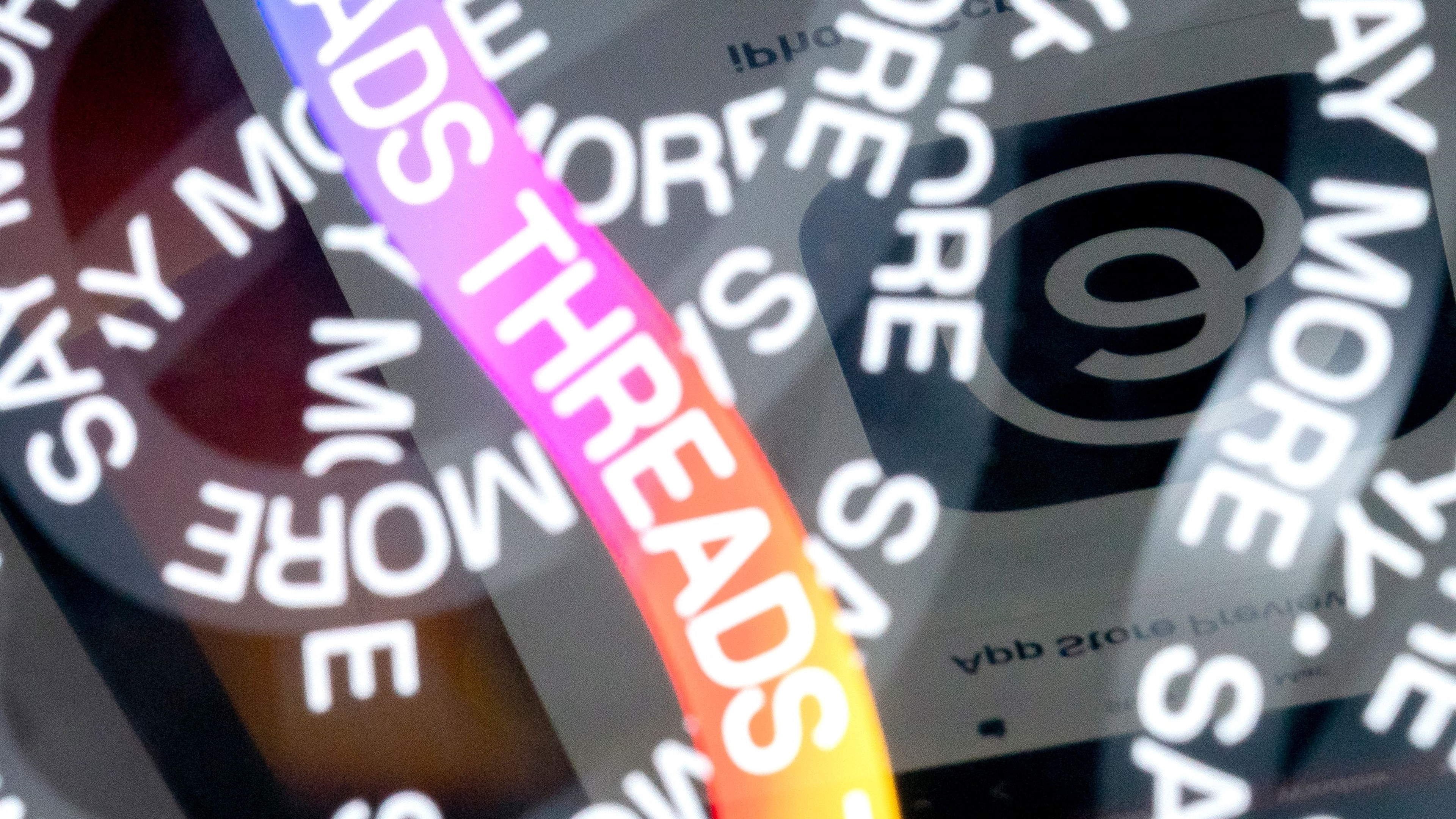Threads threatens to muscle in on Mastodon's Fediverse and admins are up in arms about it
Privacy concerns have lead to petitions being signed to keep Meta out.

If you're as terminally online as most of the modern world today, you'll have been witness to the slow burning dumpster fire that is Musk's Twitter. From the dust of the blue-bird's ashes, a digital migration has begun with users scrambling to find alternatives to the crypto-suffused social media platform.
Coming up the rear is Meta's latest Twitter competitor, the Instagram adjacent Threads network. Having promised its users future access to something called the "Fediverse" is garnering a lot of hate from a growing anti-Meta "Pact" due to worries that "they are absolutely NOT going to moderate their shit properly."
Before we get into the controversy, though, we have to understand more about the Fediverse and how it works.
You might've heard the term Fediverse if you've been looking for Twitter alternative social media platforms, particularly in conjunction with the Mastodon social network. While it's easy to pass off the Fediverse as a simple umbrella term for "the web of Mastodon posts what exist," it's much more than that.

What is a Fediverse then?
A Fediverse is a "federated universe" of social media networks. Like the federated institutions of the real world, it's a collection of spaces united under one banner, but which are allowed to retain some level of independence when it comes to their rules and how they implement code.
It's similar to how game servers work, where you can hang out in a game instance with North Americans only, or just your buds. If you have your own server you can have whatever mods or console commands you like activated, without disrupting the game for everyone else.
More importantly, you can keep certain people out.
Keep up to date with the most important stories and the best deals, as picked by the PC Gamer team.
If you want to get really metaphorical, the Fediverse is like a series of houses in a town. In this way, Twitter is the grimy neolithic settlement where the toilets are separated by paper-thin curtains, and anyone can walk into your hovel uninvited. As is the case for many centralised social networks, there's little autonomy for interest groups to separate off and moderate their content in smaller groups, since everyone is tied to the same instance.
When it comes to Mastodon's Fediverse, on the other hand, you have the option to join a like-minded group of people in your preferred house of interest, and toot (post) about what matters most to you. While you can still interact with and view content from other networks in the Fediverse, if a certain instance butts heads with another that displeases its users' collective sensibilities, there's the option to "defederate" from said undesirable instance.
I.e. Admins can block the baddies from interacting with their user's content and vice-versa.
You can even switch your profile and feed over to another network if you've started in one house, only to find you get on better with the users on the other side of the fence.

Threads plan to become federated
The idea of a federated universe is not unique to Mastodon. Other social media platforms can work in this same decentralised way, by utilising protocols such as ActivityPub—one of Mastodon's primary protocols. With the code being open-source, anyone has the freedom to make their content available through ActivityPub, pulling in and pushing content through it.
That includes companies like Meta, for example, which created Threads with a mind to integrate with other decentralised platforms that use ActivityPub. While it might sound like a positive social melting pot is arising, Mastodon users are very unhappy about the idea that Meta's lack of moderation light ruin their ad-free corner of the web, and make it less safe for marginalised communities.
As such, many Mastodon admins began pledging to block Meta content from their instances altogether, and a movement known as the fedipact has emerged. The collective seeks to rise against Threads' move toward the fediverse, which is also dubbed Project92.
On the fedipact why page, fedipact leader vantablack explains their anger over the Project92.
"Setting aside all the genocide and behavioral experimentation and election rigging, why would you give them special privileges just because they're some big tech giant? why should we trust them? they've given us absolutely no reason to and every reason to not."

Concerns over Meta's shady practices
One of the many perceived benefits of a decentralised solution like the Fediverse, comes in the form of autonomy over privacy. Since each instance employs something called "transport-layer encryption", and server admins are free to set their own policies, you get to decide which server you trust with your content and personal data. What this kind of encryption doesn't protect from is the server admins and mods of your particular instance, or the mods of another user's network who you've contacted, having access to your personal messages.
It's a bit of a wild west way to moderate, but the lack of end-to-end encryption means it's much easier to keep users safe, provided the mods are any good. It also means instances can keep their user's data being harvested by large companies who would likely sell it on. And since there have been a lot of privacy concerns over how Threads collects user data, Mastodon users are rallying to keep the big-tech giant from their doorstep.

Best CPU for gaming: The top chips from Intel and AMD
Best gaming motherboard: The right boards
Best graphics card: Your perfect pixel-pusher awaits
Best SSD for gaming: Get into the game ahead of the rest
When you sign up to Threads, the privacy statement makes it clear that information such as your sexual orientation, race, union memberships, biometrics, religion, and whether or not you're pregnant are harvested. Meta then holds the right to send this personal data to "service providers" and "analytics partners," which very likely refers to advertising and marketing companies.
So when Meta threatened to muscle in on the Fediverse, and in turn gain access to user data through user's interactions with Threads posts, you can bet there was an uproar.
I expect the feverish tooting to continue over the coming months, but I'll round off with the fedipact's closing sentiment. "If we decide that freedom is impossible, then we'll prove ourselves right. but if that is the truth, well then i think that there's worse things in this world than being wrong."

Screw sports, Katie would rather watch Intel, AMD and Nvidia go at it. Having been obsessed with computers and graphics for three long decades, she took Game Art and Design up to Masters level at uni, and has been rambling about games, tech and science—rather sarcastically—for four years since. She can be found admiring technological advancements, scrambling for scintillating Raspberry Pi projects, preaching cybersecurity awareness, sighing over semiconductors, and gawping at the latest GPU upgrades. Right now she's waiting patiently for her chance to upload her consciousness into the cloud.

